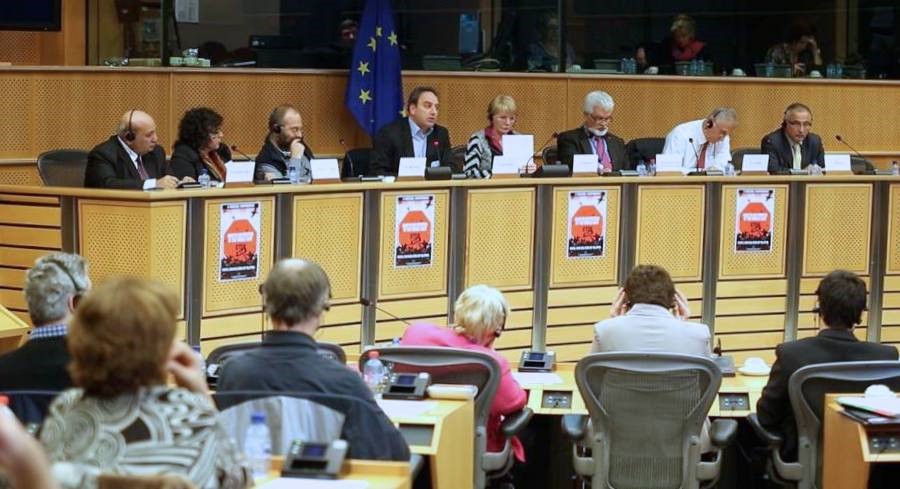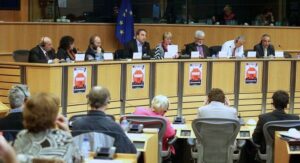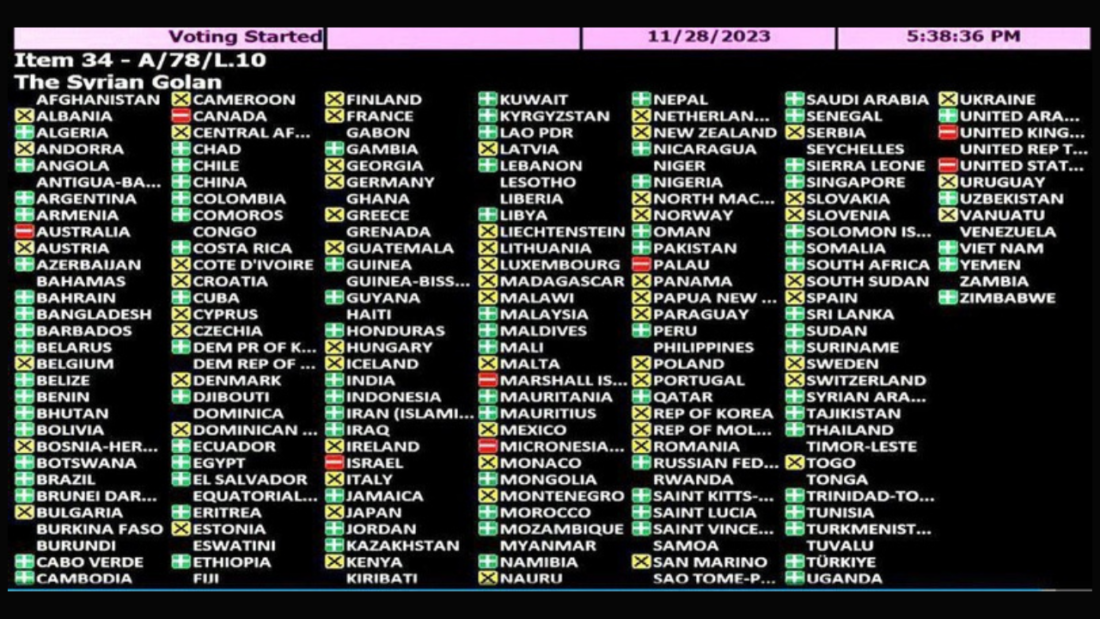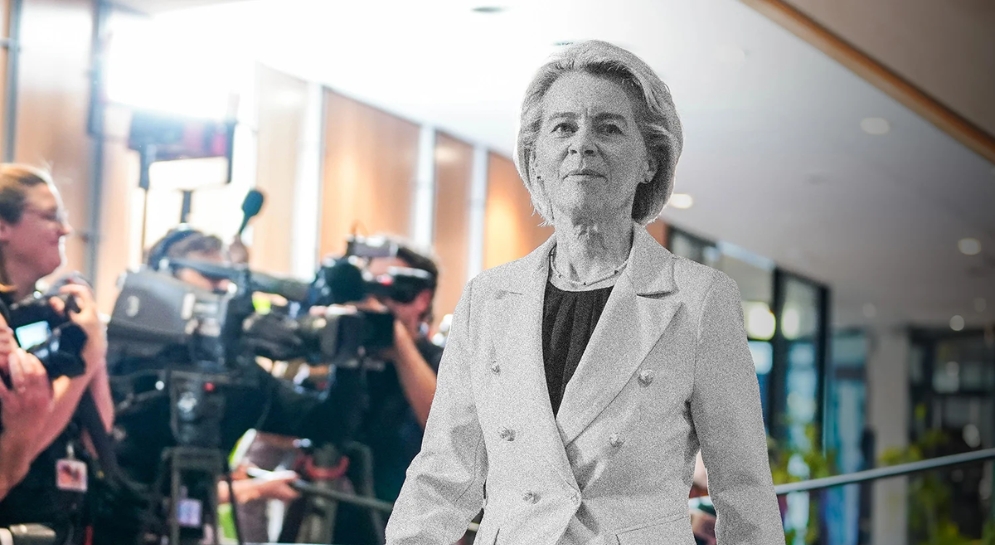
Speech by Stefanos Stefanou, Member of the Political bureau of the Central Committee of AKEL, at the Hearing “Against war and intervention in the Middle East”
16th October 2013, European Parliament, Brussels
The topic of the discussion sets an unquestionable position which AKEL fully shares and supports. The Left, just like every progressive force in the world, is and must be against war and interventions in the Middle East. Of course this position applies to any predatory war and any intervention in any part of the world.
The Middle East is not only now up in flames. The chronicle of wars and imperialist interventions in the region goes back many decades in time. This is because the Middle East is a region of priceless value for world domination and global economic dominance.
The value of the area stems first and foremost from its geographical position which acts as a bridge between three continents. The Middle East is a trade and energy hub of global importance. In addition, there is the wealth of oil and natural gas that exists in the region. These two characteristics make the control of the region, a vital and essential precondition for every great power seeking to promote and serve its geopolitical interests.
The Middle East is at the heart of a wider geographical area which the US and Western strategic thinking in general, consider will determine the outcome of the struggle for world domination in the coming decades. They call this area “Broader Middle East and North Africa” which stretches from the Atlantic to the IndusRiver, to the south it is defined by the Sahara desert and to the north by the Black Sea and the Caucasus. It is characteristic that even the US armed forces have now “divided” the planet into administrations which correspond more or less with this region.
Having regard to the above one can fully interpret the insistence of the US to invade Afghanistan and Iraq violating the Charter of the United Nations, as well as every notion of International Law. This is how the insistence of the Western powers to intervene in Libya in order to control the post-Gaddafi era is explained, but also their interventions in Tunisia and Egypt to maintain control over the situation and not to lose their influence in these countries.
It is a fact that the Middle East suffers from various political, ethnic, territorial and religious problems which provoke wars and conflicts. The US which is a protagonist of developments in the Middle East, but also other imperialist centres who are aiming at a new division of the spheres of influence and control and a redrawing of borders, are exploiting the existing problems to incite upheavals. At the same time, they create pretexts for themselves in order to intervene and justify their aggressive policy with the help of the well-paid international and local mass media at their service.
This practice puts even more additional burdens on the already troubled situation and ultimately the price paid by the peoples of the region’s countries is huge. The carnage of victims is enormous. The “transition to democracy” within the context of the so-called “Arab Spring” that was greatly advertised, the constant reference to Iran’s nuclear program, the threats made for the assumption of military action against Syria on the pretext of the use of chemicals in the civil war, are part of a deceptions aiming to conceal the real imperialist plans in the region.
However, it is difficult for these pretences to provide adequate cover, given that the policy of both the US and the European Union is full of contradictions. The US and the EU talk about democracy and democratic processes, but support and give political and diplomatic cover to all the monarchist and authoritarian regimes in the region which violate human rights and freedoms on a mass scale. It is evident that for the US establishment and the ruling circles of the EU the smell of oil is much stronger than the air of freedom. The US and the EU express concerns and impose an embargo on Iran but close their eyes to the country which according to all information was the first to develop nuclear military programs and possesses nuclear weapons, that is to say Israel. Consequently, the stand of the Americans and Europeans is not sincere; it is in fact hypocritical and stems from selfish interests. The same is the case with regards the possession of chemical weapons by various countries in the region, a fact over which sensitivities are again selective and depending on the specific case.
Dear friends and comrades,
Any findings and analyses become important when these support and promote actions and policies that serve peace, progress and justice. In today’s challenging and complex world we live in, it is of great importance to achieve peace in the Middle East and put an end to conflicts and wars.
We are not day-dreamers, nor are we under any illusions. International imperialism is not going to abandon its plans and review it’s aggressive and expansionist policy by itself. The exploitative and aggressive nature of capitalism, especially in the monopoly stage it is now at, needs aggressive policies and the continuous search for and conquest of new sources of wealth. That is why it is imperative that the peoples, all progressive and peace-loving forces in the region, must devote their actions towards impeding and resisting the policies of war and exploitation and towards promoting policies of peace and cooperation.
These policies become much more effective and have much better chances of succeeding when expressed through specific targeting of goals and assertions. To this end, all the progressive and peace-loving forces in the region can unite their forces and through collective and mass-based actions, demand:
1. All foreign interventions in the region, but also in the internal affairs of the countries of the region, must end. The struggle for democracy and the sovereign will of the people of each country is matter of its people alone.
2. The unilateral actions of foreign states in the region must be terminated. The role of the international community in favour of peace and stability must be exercised collectively. The United Nations must play the leading role towards this end, which despite its weaknesses and shortcomings, is the only international organization that can adequately ensure the respect of International Law.
3. The problems that beset the region (the Palestinian problem, the Cyprus problem, the problems of Lebanon, Egypt and Syria etc) should be solved in a way that would ensure peace and the well-intentioned interests of the peoples of the region. The guiding compass and basis for solving these problems must be the relevant United Nations resolutions and International Law.
4. The banning of all the nuclear and chemical weapons and the declaration of the Middle East into a region free from nuclear and chemical weapons would constitute a first decisive step towards the prevalence of peace.
If all of the above were to be fulfilled, then it is certain that an important step will have been taken towards ending the conflicts and interventions, for the prevalence of peace and cooperation.





